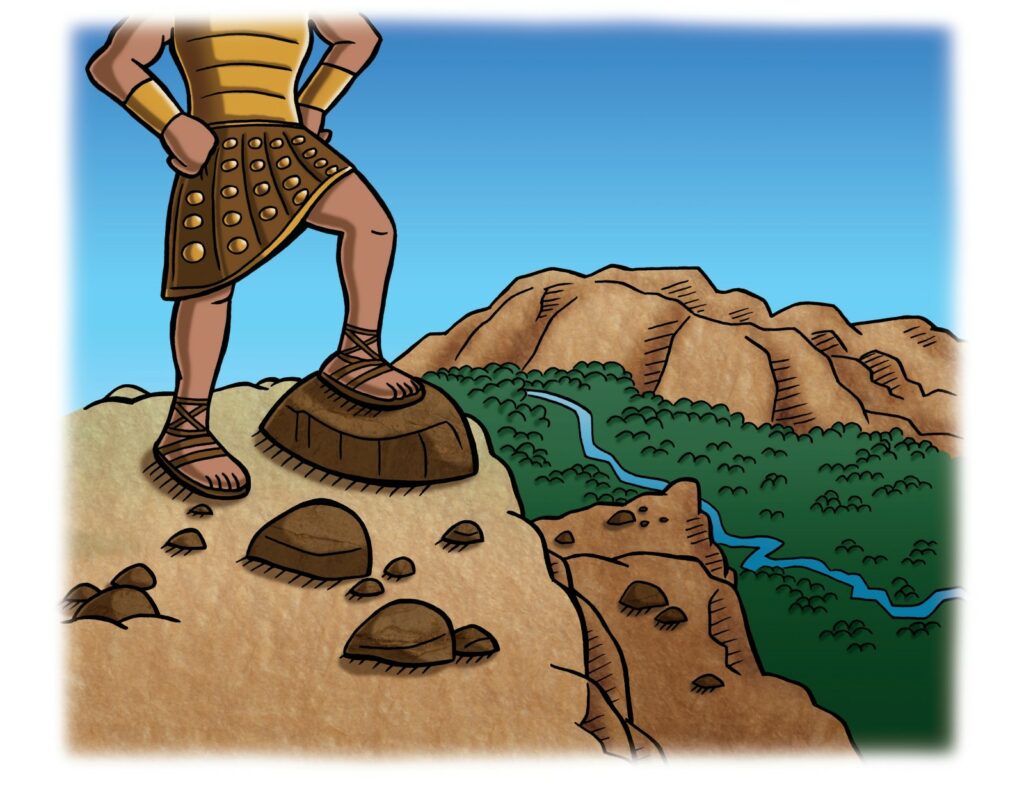Godly leadership is hard to come by. The problem is not that God hasn’t left His people with good examples of godly leadership. Rather, the problem is that people do not want to lead – or at least do so in a way that is prescribed by God.
One of the defining marks of leadership is seen in the home.
Abraham was a man of God, and therefore he led his family into a new and better country (Gen. 11:27-12:8). Joshua was also a wonderful example of a godly leader in his home, and he vowed before the Lord and his people that he and his family would serve the Lord (Jos. 24:14-15).
Moses was a man who struggled in believing that he could lead, but nevertheless God used him. Nehemiah is one of the greatest examples of a godly leader in all of Scripture. He single handedly went out to assess the situation of rebuilding the walls of Jerusalem.
He then motivated the people of God to do the work of God. He instilled courage in his people, the work was accomplished quickly, and the walls were rebuilt.
But then there are the bad examples that we can see all throughout the Scriptures as well. Lot was a man who was declared in the book of Jude to be a righteous man. In other words, it does seem as though he was a true believer.
However, he made some horrible leadership decisions in his home, and it cost him his wife’s life (Gen. 13:14, 19). Aaron was a man that was put in place by God to help Moses lead the people of Israel.
However, we can see a time in Aaron’s life when he gave into the demands of the people to make a carved image rather than walk in his God-given authority.
In the Bible, simply one or two examples of bad leadership in the life of a particular person do not necessarily mean he was an altogether bad leader. In the life of many of the good leaders, there were times of sin and failure. This can help the believer to fight off discouragement. He can know that even the best of leaders still need the grace of God.
But every leader and everyone who aspires to lead must seek to learn from the Scriptures concerning what it means to lead biblically. Thus, this article now turns to Joshua. Moses had just passed away, and Joshua was the next man in line to lead the people of God.
Would he crumble under the pressure, or would he take the reins and trust in the Lord?
Joshua 1:10-11 gives a glimpse of Joshua’s approach to leadership as he steps into what God has called him to.
Joshua was a leader who walked in his authority

First of all, Joshua knew what it meant to lead. He was not a distant spectator of Moses during Moses’ leadership. Rather, Joshua was a close associate and a trusted confidant of Moses. Joshua would have been learning by Moses’ example for many years prior to him stepping into the position of leadership.
One of the best ways to learn how to lead biblically is by watching others who do it well. But now, Joshua finds himself in the position of Moses. Moses was no longer there for Joshua to watch. Now all the eyes of the people were laid upon Joshua.
So what did Joshua do? Scripture says, “Then Joshua commanded the officers of the people, saying, Pass through the host, and command the people, saying, Prepare you victuals; for within three days ye shall pass over this Jordan, to go into possess the land, which the Lord your God giveth you to possess” (Jos. 1:10-11).
This Scripture will be the focus of this article, and we will return to it throughout.
Right away, this verse tells us that Joshua commanded the people. He walked in his authority. This is an important dynamic of leadership. Those in authority must learn to walk in their authority.
Authority is a God-given and divine responsibility for those in this position. This does not mean that one must be a brutal task master. Nevertheless, those in authority must walk in it. They must recognize their position and lead.
Joshua was a leader who delegated responsibility
Next, Joshua knew, just like Moses, that he was only one man and the work would never be accomplished all by himself. Joshua commanded “the officers” to go and command the people.
Delegated authority was something that Moses learned from his father-in-law. In turn, Joshua would have learned about delegated authority from Moses. Joshua was a good leader, and he knew that his leadership would only prevail among the people if he found other faithful leaders to help him lead.
Joshua was a leader who trusted in those under him
Not only did Joshua delegate responsibility, but he trusted the people under him. This does not mean that Joshua was stupid. Instead, Joshua would have been studying the people, he would have developed relationships with the people, and he would have strategically placed people in their positions.
He then believed that if he gave them a command, he did not ultimately need to carry it out himself. Rather, he trusted the people do what he asked of them.
Joshua was a leader who had a plan
Leaders need to have a plan. They must have direction. That is the whole point of leadership. A leader leads others from point A to point B. A good shepherd leads his sheep to pasture and by the streams to drink.
Joshua had a plan. Scripture says, “Prepare you victuals; for within three days ye shall pass over this Jordan, to go in to possess the land…” (Jos. 1:11).
Joshua knew what the Lord had called him to. Joshua also knew what was best for the people. As a result, Joshua had a plan, and he inspired others to believe in his plan.
Joshua was a leader who trusted in the Lord
A good leader cannot exist apart from this next point. Joshua says concerning the land, “which the Lord your God giveth you to possess” (Jos. 1:11).
Joshua trusted in the Lord. He knew that the battle would be won by the mighty, outstretched arm of God. Joshua knew that the chariots would be prepared for battle and that all the soldiers would bear their arms, but that the Lord would give the victory.
A godly leader is one who looks to the Lord for direction but then believes that the Lord will direct his paths.

Joshua was a leader who led others to trust in the Lord
In Joshua 1:11, it is evident that Joshua was not just concerned about his own faith but also the faith of those around him. Joshua believed what the Lord had told him about going in to occupy the land.
However, Joshua knew that the people needed to believe as well. It was more than a motivational speech that Joshua wanted to give the people. It was more than a pep talk to get the people a little pumped up for action. Joshua wanted to instill faith in those that God had entrusted in his care.
Joshua pointed the people to the very reason that victory would be theirs. He told them that God would be the One Who would give the victory. Joshua sought to turn the gaze of the people off the mighty walls of Jericho and onto the One Who destroys strongholds. Joshua wanted to direct the sight of his people off the powerful army before them and onto the Lord of Hosts.
Application
Leadership is needed in the church today. God is calling godly leaders to step up and lead those around them. Take note of the ways in which Joshua led his people.
Joshua walked in his authority, he delegated responsibility, he trusted in those around him, he had a plan, he trusted in the Lord, and he led others to do the same.
Final prayer
Father, I thank You for the ways that You have modeled leadership. Help me to learn to lead like You and to be pleasing in Your sight. In Jesus’ name, Amen.


